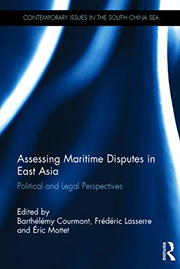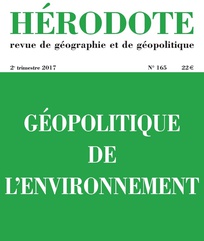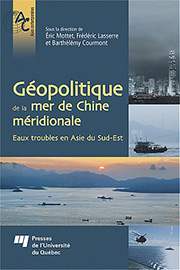New Releases of Eric Mottet
Book
IRASEC is pleased to announce the parution of an article and two books with the participation of Eric Mottet, affiliated researcher to the IRASEC.
Assessing Maritime Disputes in East Asia
Political and Legal Perspectives
Edited by Barthelemy Courmont, Frederic Lasserre, Eric Mottet
Combining practical and theoretical approaches, this book addresses the political, legal and economic implications of maritime disputes in East Asia.
The maritime disputes in East Asia have multiplied over the past few years, in parallel with the economic growth of the countries in the region, the rise of nationalist movements, fears and sometimes fantasies regarding the emergence of the People’s Republic of China (PRC) as a global power, increasing military expenses, as well as speculations regarding the potential resources in various disputed islands. These disputes, however, are not new and some have been the subject of contention and the cause of friction for decades, if not centuries in a few cases. Offering a robust analysis, this volume explores disputes through the different lenses of political science, international law, history and geography, and introduces new approaches in particular to the four important disputes concerning Dokdo/Takeshima, Senkaku/Diaoyu, Paracels and Spratlys. Utilising a comparative approach, this book identifies transnational trends that occur in the different cases and, therefore, at the regional level, and aims to understand whether the resurgence of maritime disputes in East Asia may be studied on a case by case basis, or should be analysed as a regional phenomenon with common characteristics.
Environmental Hydropolicy of the Mekong :
Between Strong National Stakes and Weak International Activism
By Eric Mottet and Frederic Lasserre
Hérodote 2017/2 (N° 165),(Pages 165 - 184)
The environmental issues of hydroelectric development on the main channel of the Mekong River have become an important subject of debate between the riparian countries and environmental experts and activists, most being Western. At the national level, the question of the poorly coordinated management of dam projects along the Mekong River course triggered protest movements within civil society, but it does not lead to a weakening of hydroelectric development policies. This is because, on the one hand, governments have not relented their desire to control the management of the resources of the basin, despite civil protests ; and, on the other hand, the inability of the Mekong River Commission (MRC), despite a legitimate institutional framework, to develop a binding legal framework. This contributes to the gradual erosion of the Commission’s relevance in the eyes of its members, international donors and China, the latter now proposing its own model of South-South cooperation, the Lancang-Mekong Cooperation Initiative.
Géopolitique de la mer de Chine méridionale
Eaux troubles en Asie du Sud-Est
- Sous la direction de Éric Mottet, Frédéric Lasserre, Barthélémy Courmont
- Avec la collaboration de Barthélémy Courmont, Nathalie Fau, Éric Frécon, Frédéric Lasserre, Éric Mottet, Daniel Schaeffer, Keyuan Zou
- Collection Asies contemporaines
Les tensions en mer de Chine méridionale sont bien ancrées dans l’actualité internationale, cristallisées autour des luttes que se livrent six pays asiatiques (dont quatre pays d’Asie du Sud-Est) pour le contrôle d’espaces maritimes et insulaires. La rivalité entre les pays d’Asie du Sud-Est et la Chine ne peut être appréhendée qu’à la lumière des incidents récents. Plus qu’une simple dispute territoriale, elle expose des situations maritimes et frontalières multiples, enchevêtrées et incompatibles. Si la position chinoise est bien connue (sans être pour autant légitime), les raisons qui permettent aux pays d’Asie du Sud-Est de revendiquer des territoires en mer de Chine méridionale le sont un peu moins.
Qu’en dit le droit international ? Quels sont les enjeux politiques, économiques et géopolitiques de ces conflits ? Nous dirigeons-nous vers une impasse militaire ou vers une solution politique ? Quels sont les arguments et les demandes des pays d’Asie du Sud-Est ? Quels sont les desseins de la Chine, et quelles sont les répercussions de ceux-ci sur les politiques de voisinage en Asie du Sud-Est ?
Faisant appel à des expertises croisées, le présent ouvrage répond à ces questions et cherche à montrer dans quelle mesure les conflits actuels s’articulent autour de paradigmes aux contours encore mal définis. Il est appelé à devenir une référence incontournable dans le domaine.
2017, 202 pages, D4805, ISBN 978-2-7605-4805-3
4 September 2017












